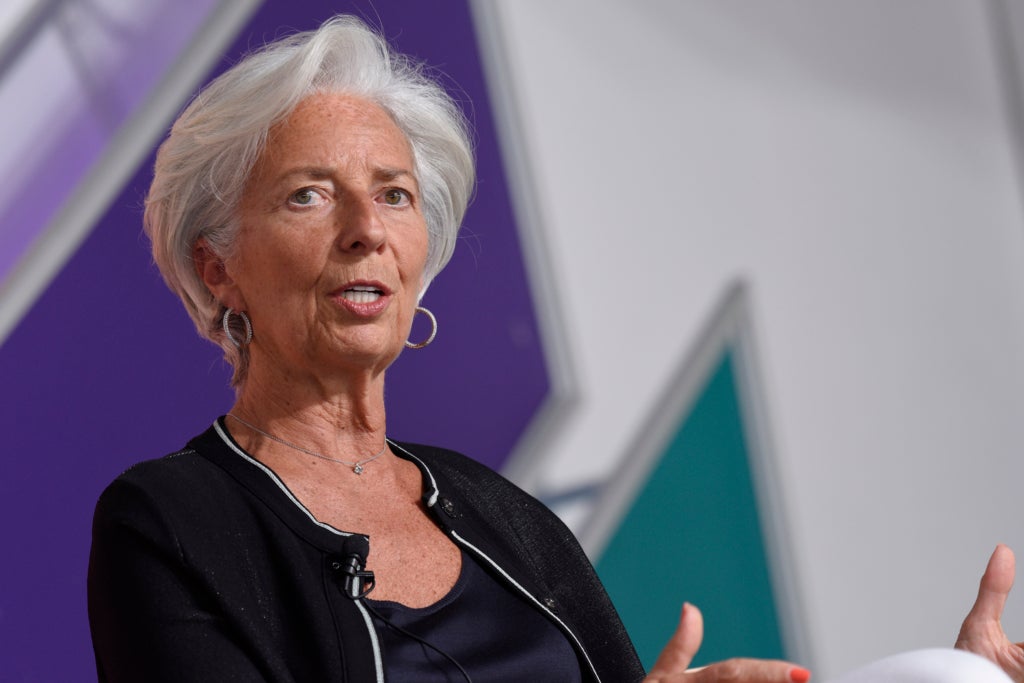
(Photo Credit: Daniel Bayer/The Aspen Institute)
The Brexit decision was “heartbreaking for those of us who are truly Europeans,” said Christine Lagarde, the managing director of the International Monetary Fund, on Sunday evening. And she offered a plea for global leaders, asking them to restore certainty to an uncertain situation.
Markets usually get things right—but they got the result of the Brexit vote very, very wrong. Its failure to predict the Brexit produced a sudden plunge in the pound that was “violent, brutal, immediate, massive,” she said, it also showed the fundamental resilience of the system. “There was no panic, despite the fact that markets had not anticipated that vote … and the central bankers did the job that they were prepared to do just in case,” she insisted, flooding the markets with liquidity.
Lagarde spoke at the opening session of the annual Aspen Ideas Festival, which is co-hosted by the Aspen Institute and The Atlantic. She said that the IMF’s internal simulations did not forecast a happy future. Although Lagarde was careful and cautious in her remarks, they formed a stark contrast to her warnings ahead of the vote. Back then, she described the range of potential outcomes from “pretty bad” to “very, very bad.”
A great deal, she stressed, now hinges on the degree of uncertainty, and the speed with which unknowns are resolved. “We are hearing at the moment different statements going in different directions,” she said, adding that the IMF has “very strongly encouraged” the parties to “proceed with the transition with the most efficient, predictable way in order to reduce the level of uncertainty which will itself produce the level of risk that we are facing.”

But the U.K. is “the only country that can trigger the mechanism,” she noted. She expressed skepticism that it would want to reverse the outcome of the non-binding referendum, but stressed that the decision as to the next steps — and the obligation to provide resolution — lie with Britain.
But right as Lagarde took the stage to deliver her plea for clarity and certitude, the British conservative politician Boris Johnson published an op-ed in which he cheerfully declared that “the negative consequences are being wildly overdone, and the upside is being ignored.” He sketched a future in which “the only change” would be England disentangling itself from European legislation and reasserting control of its own borders. “British people will still be able to go and work in the EU; to live; to travel; to study; to buy homes and to settle down,” he insisted, and free trade will prevail.
But Johnson failed to specify precisely how this would happen, and was conspicuously silent as to when, saying only “it will not come in any great rush.” There was no mention of Article 50, the provision that, when invoked, starts a two-year countdown that leads irreversibly to Britain’s exit from the European Union.
That won’t provide much comfort to Lagarde; it’s a promise that should Johnson move into 10 Downing Street, the uncertainty will extend for a while to come. Lagarde recognized the balance between “being rigorous and being fair” that E.U. leaders will have to strike in negotiating a British exit. An arrangement like that which Norway has negotiated, she added, “would be the best outcome,” both for the economy, and for young, hopeful Britons who may not have voted in very large numbers, but clearly split from their older compatriots.
There was another question Lagarde posed. “Why is it that the populist voices, sometimes based on so-called truth that they now have to retract—why is it that those voices carried a lot more, and a lot further, than the voices of ‘experts’ who were largely unanimous about the outcome and consequences of the decision?” It hung in the tent, unresolved.
This article originally appeared at The Atlantic.

